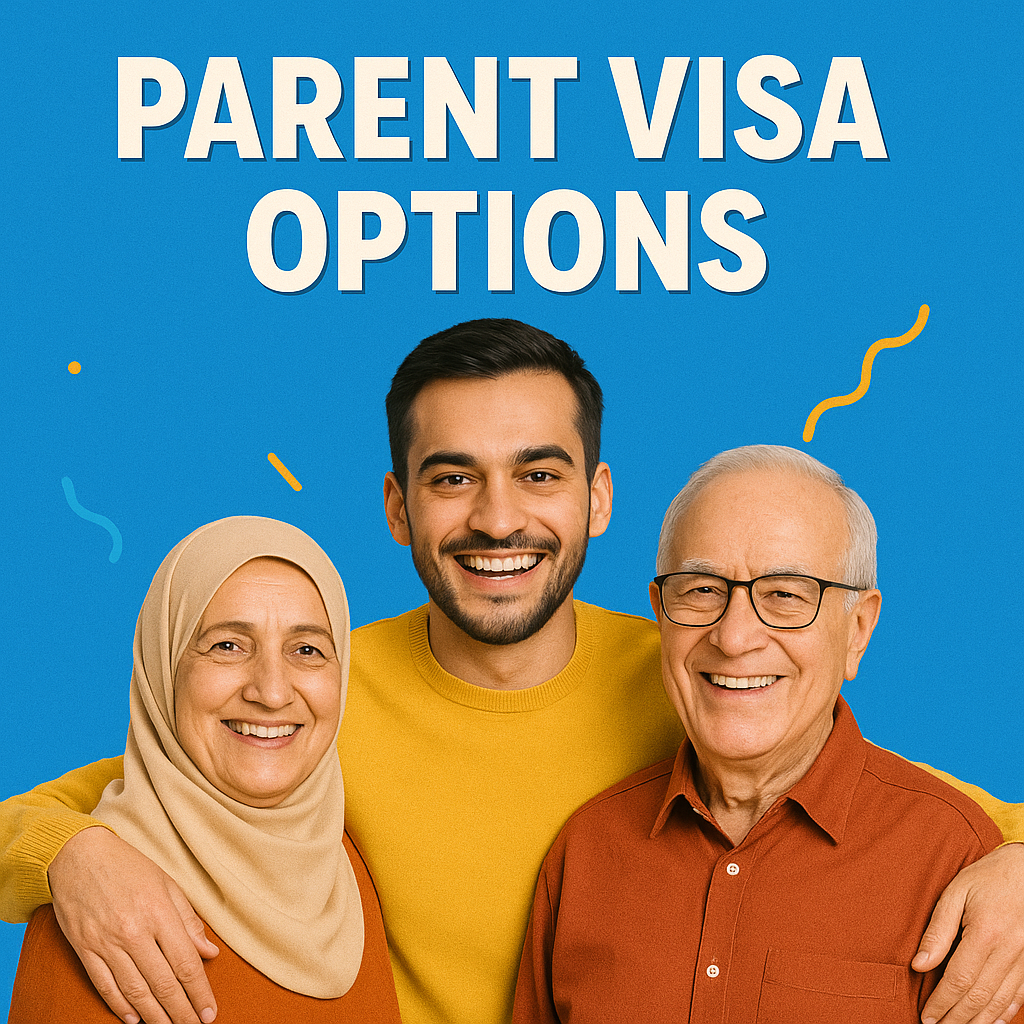Discover elderly parent visa options for skilled migrants, including eligibility, pathways, and actionable steps for parent sponsorship and family reunification.
Introduction
Skilled migrants often struggle to reunite with aging parents due to strict visa policies and long waiting periods. This article explains the main challenges in sponsoring elderly parents, then provides practical solutions and action steps for bringing parents to countries like Australia, Canada, and the UK under dependent parent visa options.
The Problem Skilled Migrants Face
For skilled migrants, ensuring the well-being of elderly parents is a top concern. Many wish to bring parents on skilled visas but face obstacles such as:
- Stringent eligibility criteria require financial and medical assessments.
- Lengthy processing times, with some queues stretching over a decade in Australia.
- Policies that prioritize partners and children over parents, limiting parent migration for skilled workers, especially in the UK and Australia.
- Requirement to demonstrate that the parent has no reasonable access to care in their home country, which can be difficult to prove.
- Annual visa caps result in uncertainty and delayed family reunification.
These barriers create emotional and logistical challenges for families seeking stability and support across borders.
The Solution: Visa Programs and Strategies for Elderly Dependent Parents
Australia: Aged Parent Visas
Australia provides several parent migration streams for skilled workers who wish to sponsor elderly parents:
- Aged Parent Visa (Subclass 804): For parents of settled Australian citizens, permanent residents, or eligible New Zealand citizens. Applicants must meet age requirements and pass the balance of family test. Processing can take years due to annual caps, but visa holders can live in Australia while waiting. Sponsorship and an assurance of financial support are required.
- Contributory Aged Parent Visa (Subclass 864/884): Offers faster processing but comes with higher government fees and the requirement of a substantial assurance of support bond. Grants permanent (864) or temporary (884) residence for parents who meet age and family relationship criteria.
- Both visa types have stringent queueing systems; only a limited number are issued each year. Recent policy changes allow certain visitor visa holders (Subclass 600, Ministerial Intervention cases) to remain eligible, even if not meeting normal age requirements.
Key eligibility for Australia:
- Must have at least half of your children lawfully and permanently residing in Australia.
- Must be sponsored by your settled child.
- Must provide evidence of financial security and health.
United Kingdom: Adult Dependent Relative Visa
The UK’s dependent parent visa for skilled migrants is limited and highly restrictive:
- Adult Dependent Relative Visa: For parents or other adult relatives requiring long-term care unavailable in their home country. The main skilled migrant must have a settled status or indefinite leave to remain; skilled worker visa holders cannot sponsor parents under current rules.
- Applicants must demonstrate that care is unaffordable or unavailable in their origin country and that the sponsor can support them financially for at least five years without recourse to public funds.
Key UK rules:
- Only British citizens, settled persons, or those with refugee status can sponsor parents.
- Skilled workers may bring only their spouse and minor children—not parents.
Canada: Parent and Grandparent Sponsorship
Canada offers the most accessible and popular parent sponsorship program for skilled migrants:
- Parent and Grandparent Sponsorship: Canadian citizens and permanent residents can sponsor parents and grandparents for permanent residence, subject to annual intake limits and lottery-based invitation rounds.
- Super Visa: Provides up to five-year stays at a time for parents/grandparents of Canadian residents. Requires proof of income and private health insurance; can be extended while in Canada.
Key Canada criteria:
- Sponsor must be aged 18 or older, meet income thresholds, and provide a financial undertaking for 20 years in most cases.
- Super Visa requires no lottery, offers a faster option, but does not lead to permanent residency.
Action Steps to Get Started
- Assess Eligibility and Choose the Best Program
- Use government toolkits or seek professional advice to review requirements: financial thresholds, balance of family test, and health insurance needs.
- For Australia, check the aged parent visa subclasses and contributory options.
- For the UK, review the Adult Dependent Relative visa—note restrictions for skilled worker visa holders.
- For Canada, review both the permanent sponsorship and Super Visa streams.
- Gather Documentation
- Birth certificates and evidence of relationship.
- Proof of immigration status for the skilled migrant or sponsor.
- Medical assessments and reports confirming the parent’s health status.
- Proof of income, financial strength, and (in Canada/Australia) assurance of support.
- Prepare and Lodge the Application
- Submit online or paper applications as per country guidelines.
- Pay government fees and submit required medical and police checks.
- In high-volume streams (e.g., Australia, Canada), apply early and be prepared for possible long waiting periods.
- Stay Informed and Seek Professional Help
- Monitor official government announcements for visa cap updates and policy changes.
- Consult migration agents or immigration lawyers for up-to-date advice and to streamline applications, especially for complex cases or recent changes.
Conclusion
Elderly dependent parent visas for skilled migrants are available but challenging to obtain, with strict requirements and lengthy wait times in many countries. Canada provides the most flexible options for permanent and temporary reunification, while Australia and the UK have narrow eligibility and long queues or limited pathways. Careful planning, timely action, and a clear understanding of up-to-date policies are essential for success. Consider professional guidance to maximize your parent sponsorship success.



